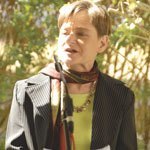
This is my last column of 2012, and at the end of another year that has flown by in a flash and a blur, I cannot help but reflect on what were its most striking concerns.
Opinion by Rosie Mitchell This column has grown increasingly environmentally focused, reflecting the escalating onslaught on our God-given natural surroundings, flora and fauna, and I’ve no doubt next year will see more of the same, with ranting such as mine continuing largely to fall on deaf ears.
We are indeed the most destructive and ungrateful of species living on a planet shared by a decreasing number of other species, whose living space we are systematically ruining.
In the long run, the human species will pay the price for our greed and inability to heed the multitude warning signs and the insights from experts about what our future, and that of this planet, holds, if we carry on with our outrageous, selfishly motivated, money-driven behaviours which lead us to plunder the land and all creatures living on it with such short-sightedness.
Regardless of all the publicity directed at the “ruination” of Harare’s wetlands, each day, I see ploughs and tractors and construction machinery blatantly destroying our only lifeline to water, and that of 6,5 million humans, not to mention all the other species, dependent downstream from us on the rivers whose only collection source of water is these vleis in our city.
The commercial-style farming observed all over the city in vleis, is no longer the work of poor downtrodden people, on the whole, it is primarily the work of greedy people taking advantage of the failure to enforce the laws that prohibit this behaviour which has only today in mind, and does not look to the bleak future it is creating.
I see such people overseeing “their” fields. They drive there in their cars, often very expensive models. No law enforcement agency ever stops them. As has been pointed out over and over and over by myself and hundreds of others trying to get this message across, this is not about “bunny hugging”, it is a humanitarian crisis in the making, because we are running out of water already. Few people are listening to the warnings.
So, I must continue to repeat the mantra, and will do so, through next year — no wetlands, no water.
- Chamisa under fire over US$120K donation
- Mavhunga puts DeMbare into Chibuku quarterfinals
- Pension funds bet on Cabora Bassa oilfields
- Councils defy govt fire tender directive
Keep Reading
There are many soldiers fighting for the conservation cause, the vast majority of us, without payment.
Writings such as these are a year-round voluntary exercise and those running conservation trusts of various kinds do their fine works without salary because they actually give a damn — about the long-term future, not just about today and their own personal needs and wants.
I only wish that our army would swell till it’s large enough and powerful enough to have the kind of high-level impact required to actually put a stop to the destruction, before the last pangolin, rhino, wild dog is murdered, the last indigenous tree falls.
Songo Area highlighted at Ian Nyschens Trust event
An event last weekend run by just some such soldiers, the Ian Nyschens Zambezi Valley Conservation Trust, “Preservation For The Next Generation”, raised awareness of its anti-poaching efforts and its conservation and community development projects in the Songo area.
On display were various excellent art by artists from the area as well as from Chitungwiza and Mabvuku, all created from various recycled materials. Patrick Lupi and band and the Mabvuku Mbira Ensemble entertained attendees.
Nyschens first ranger deployed by national parks In 1954, Ian Nyschens was the first Ranger ever employed by the Department of Wildlife Management which later became National Parks and Wildlife Management.
In 1995 he met Steve Pope at a ceremony at Pope’s bush camp in the Campfire concession along the southern boundary of Mana Pools and learned of his efforts to establish hyena research projects to study their influence in predator populations in Mana. Aged 83, Nyschens with Pope set up this Trust to educate children in ecology and environment and to spearhead conservation projects.
Threat of extinction of wildlife species real New venue in Borrowdale, The Circle, hosted the “Preservation For The Next Generation” fundraiser, which also received support from Telecel, for anti-poaching, conservation, and the promotion of community development in the Songo area.
Representatives from the Ministry of Tourism and National Parks and Wildlife attended and Wildlife Officer Munyaradzi Nhira spoke on anti-poaching efforts by Parks, highlighting difficulties experienced by anti-poaching units and the level of sophistication now being shown by professional poachers.
The presentation left no doubt that much be done to help Parks safeguard the valuable animals that are our national heritage, and ensure future generations actually have wildlife to enjoy.
Ben Vermeulen spoke on conservation and the need for urgent awareness of the very real threat of extinction of so many precious wildlife species in our country.
Songo Wildlife Management Area lies north of Siabuwa between the Sengwa and Ruzirukuru Rivers. Realising the vulnerability of communities here, the Trust set up community projects to help people improve livelihoods.
The event highlighted Songo and showcased the various proposed projects, including fish farming, creation of an artificial wetland to attract and conserve bird life, plantations for fruit and fruit products, and a worm farm both for income and for the resultant high quality organic fertiliser to enhance crop production.
- Feedback: [email protected]; 0772 212 730











